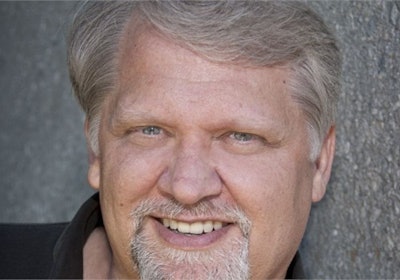 Photo by Kelly Bracken.
Photo by Kelly Bracken.
Depending on what is indicated on the visual indicator display of your metal detector, you can make a fair approximation of what you're apt to find should you decide to dig up a "hit." A solid 75 to 77 on my Garrett AT Pro is usually a penny; 82, a dime; high 80s-to 91, a quarter. It's all based on conductivity. Or so they say.
It's in the mid-ranges that you find your iffier tones. A solid 53 can turn out to a be a pull tab from a drink can—or a gold ring. The thing is, none of these readings are surefire indicators of what you're actually going to find under the ground and you won't know the true nature of the object until you unearth it. But in the meantime, no one should criticize you for digging to verify, save for the home owner whose rose garden you've just thrashed. (OK, maybe the Bud Lite ad copywriters might have a thing to say about it.)
The deliberative nature of that decision-making process—"dig/don't dig"—recalls those many occasions where I would find myself seated in my black-and-white and deciding just which car or pedestrian I might want to stop; indeed, whether to stop one at all ("We're not paying you overtime, Scoville.")
At all times I was handicapping the potential detention itself. There were built-in fail-safes in my profiling schematic (yeah, I went there). The skinny guy with the droopy mustache and Pendleton jacket was a hype. The guy with the shaved head and tats was at least a wannabe badass. And the Maybelline nightmare who never seemed to get more than a couple of blocks with two-hours worth of perambulating was a hooker. Or a fellow cop pretending to be one.
Sometimes, my expectations were trumped such as when the old lady with the Christian fish symbol on the back of her station wagon turned out to be a profane witch. I could find myself making a beeline for a less predictable Brady Bunch van (Greg and Bobby have shaved heads). Guys driving 1974 Chevy Vega's were the equivalent of the mid-range tones: Could be a dirtbag. Could be a good guy down on his luck (OK…horribly, terribly down on his luck).
The thing was, I didn't know for sure one way or another until I'd made the contact, but the totality of articulable circumstances presented me meant that nobody could blame me for at least indulging my curiosity. Whether the people I contacted ended up in the backseat of my car was another story. Maybe they'd end up just an FIR, something for another day. Maybe, they’d just be on their way. Period.
I like to think that for all the liabilities facing today's street cops—and rest assured, they are numerous—that they possess avenues to a peace of mind deprived of my arthritic generation. Automatic license plate readers obviate the need to humor defensive allegations of racial profiling. On-body cameras easily refute asinine contentions of professional malfeasance. Cellphones give the watch commanders a heads up before their paradigms are tainted by the toxic takes of catch-and-release detainees.
Still, caught between Madison Avenue exhortations of "Just Do It" and ACLU protestations against doing just that, I see where some cops can end up portraits of indecision.
And yet, the cop is the decision maker. Not Jesse Jackson. Not Al Sharpton. Not even the Supreme Court. All that stuff can be argued about later, and might well be.
But whether it becomes a bone of contention is dependent upon something happening in the first place. And really, how difficult is it for a cop to strike up a conversation with anyone? God knows many a consensual contact has evolved into a detention which in turn evolved into a full-blown arrest and booking.
While the progression from Point A to Point B to Point C can stop at any point along the way, there is no getting around the fact that you have to start at Point A. And it is here that I talked myself out of it more often than I wished I had, particularly as the years rolled along. (Tangential observation: My first year off training I made double the norm of arrests. While hardly a record, I can see where it might have led to a degree of premature burnout for someone whose ambitions were humble. Pace yourself, folks.)
I sincerely believe that saddled with the kind of body worn camera technology encountered in the field today I would make that late shift contact with greater frequency. For one, it would often translate to instant behavior modification on the part of many I come in contact with. For another, it would keep me in check, too. But rest assured, I would take advantage of it. I would also make the most of ALPR systems (talk about removing the race factor).
As it is, I am left to wonder how many quality hooks I may have foregone to simply avoid some anticipated headache.
These days, I'm on the other end of the equation - the squirrely looking dude hanging out in the kiddie sandbox who has legitimate concerns as to what effect his metal detector is going to have on the code enforcement officer and her martinet predilections.
But while I might resent her ultimate course of action, I wouldn't have any resentment toward any decision she may have to contact me.
And it doesn’t matter if I did—my predictable histrionics be damned. Nobody in their right mind would blame her.
Odds are, they won't blame you, either.
















